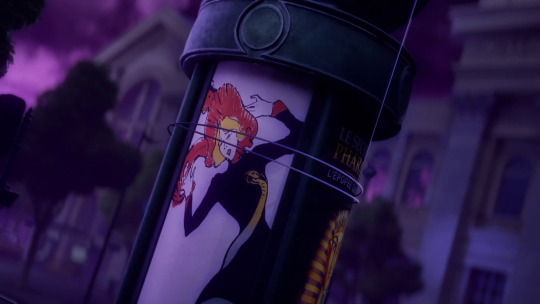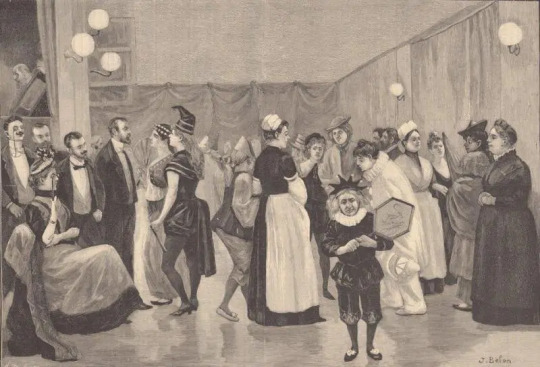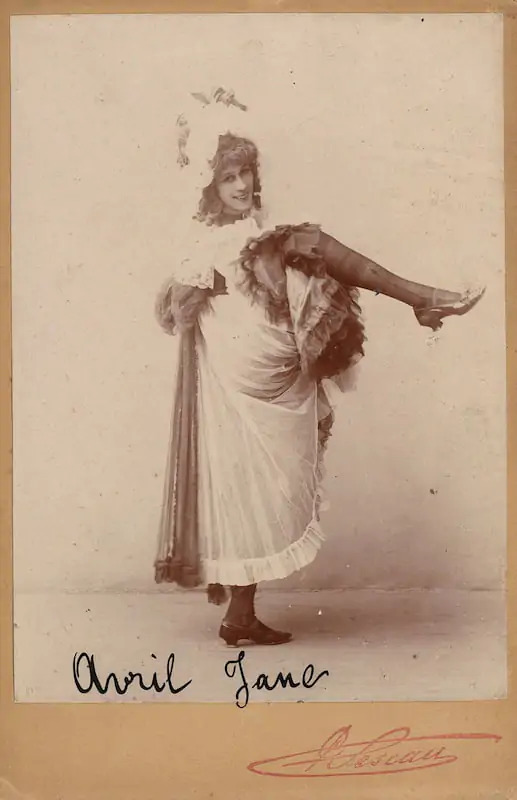#milieux
Explore tagged Tumblr posts
Text
Étude sur les conditions d’habitation, les milieux de vie et le bien-être au Saguenay–Lac-Saint-Jean
Faites-vous partie des 8 000 personnes sélectionnées? Continue reading Étude sur les conditions d’habitation, les milieux de vie et le bien-être au Saguenay–Lac-Saint-Jean
0 notes
Text
Les meilleurs milieux défensifs de tous les temps
Continue reading Les meilleurs milieux défensifs de tous les temps
0 notes
Text
god please save me from the french i hate my brethren more every day
#what do you mean they're out there calling right wing people “droitardés”#i thought we collectively agreed the left should not be ableist what is this#non mais vraiment être handi dans les milieux de gauche français c'est... une expérience#tuez moi. bref
1 note
·
View note
Text

Maurice Legrault porc détruit tout ce qu'il touche.



1 note
·
View note
Text

Eat God playtest draft 0.5.0 is now available
Version 0.5.0 of Eat God brings several major changes, foremost among them a full rewrite of the Forms and Rebellious Arts, in a more structured and (hopefully!) more readable format than the previous wall-of-text presentation. This update also includes print-and-play cards (and corresponding VTT resources) for all Forms, Arts, and playset NPCs and locations. A full list of updates is available here, or under the cut below:
Download package now includes print-and-play cards for all Forms, Rebellious Arts, and playset and NPC locations
Revised introduction to provide a link to the new Form, Art, and playset cards
Expanded discussion of the mechanical effect of Traits
Forms and Rebellious Arts are now numerically indexed in their descriptions as well as in their lookup tables
One additional Form (bringing the total up to a full 36 for the first time!), and a full rewrite of all existing Forms
Full rewrite of all existing Rebellious Arts
Added discussion of how to handle resisting Stress when multiple God-eaters are affected by the same threat simultaneously
Small clarifications to activation timing for Rebellious Arts and what it means to "activate an Art in conjunction with a test"
Greatly expanded discussion of how to adjudicate Limit Breaks
Reformatted examples of Limit Break effects and added a few more examples
Random inventory table slightly revised to make its implicit milieu more consistent, and moved from the Inventory section to a separate appendix in preparation for adding multiple random inventory tables for different milieux
"Effect modifiers" renamed "impact modifiers" to avoid ambiguity with other uses of the word "effect"; relevant terminology throughout document revised accordingly
Simplified rules for how Forms influence impact penalties (formerly effect penalties)
Added first-pass rules for imposing temporary Traits upon NPCs
Added discussion of how cooperative tests work in the context of multiple God-eaters ganging up on a single NPC
Reformatted playset location/NPC/calamity tables for better readability
Added "Appendix B: Additional Tables"; right now this just contains the relocated starting inventory table (see above)
2K notes
·
View notes
Text
Enquête Réconciliation-Équité-Diversité-Inclusion sur les métiers et professions documentaires au Québec : vers un portrait de la réalité québécoise au temps de la superdiversité
Agora de la nouvelle bibliothèque Maisonneuve (Montréal, Québec) La société se caractérise désormais par une superdiversité (Vertovec 2007) et, de fait, les publics des milieux documentaires aussi. Les métiers et professions documentaires sont préoccupés par la question de la représentation des diverses communautés et celle de leurs membres dans leur rang. On s’interroge dès lors sur le profil en…

View On WordPress
#archives#ÉDI#équité-diversité-inclusion#bibliothèques#bibliothèques québécoises#EBSI#enquête#Fédération des milieux documentaires#FMD#RÉDI#réconciliation-équité-diversité-inclusion#Vérité et réconciliation
1 note
·
View note
Text
Jane Avril et Toulouse-Lautrec
L'affiche que l'on aperçoit sur cette colonne Morris dans l'épisode Climatiqueen est une affiche du peintre français Toulouse-Lautrec représentant Jeanne Louise Beaudon, plus connue sous le pseudonyme de Jane Avril.

Jane Avril est née en 1868 à Paris et était l'une des danseuses du Moulin Rouge les plus célèbres de l'époque.


Maltraitée dans sa jeunesse par sa mère, elle sera internée à l'hôpital de la Salpêtrière en 1882 à l'âge de 14 ans et sera diagnostiquée d'une « chorée » : une maladie neurologique qui se manifeste par des mouvements convulsifs et incontrôlables, qu'elle-même appelle la « danse de Saint-Guy » (Au XIXe siècle, l'hôpital était alors l'hospice de la Salpêtrière, un asile pour femmes atteintes d’épilepsie, d’hystérie et de schizophrénie).
Au sein de cet hôpital, Jeanne découvre « le Bal des Folles » : chaque année, la bonne société parisienne s’encanaille le temps d’une soirée en compagnie des patientes internées qui étaient alors exhibées, et paradaient et dansaient en costumes de carnaval. C'est au cours de ce « bal » que Jeanne se découvrira un don et une passion pour la danse.

A cette époque, il en fallait peu pour être internée à la Salpêtrière : un mari qui cherche à se débarrasser de son épouse, une santé fragile ou bien un tempérament excentrique... Et sauf exception, on n'en sortait pas. Pour cela, il fallait être déclarée « guérie » par le docteur Jean-Martin Charcot, directeur du « service des hystériques » de l'hôpital et grand fondateur de la neurologie moderne (il a notamment donné son nom à la maladie de Charcot).
Jeanne fait partie des rares femmes à avoir pu quitter cet endroit. Mais elle retombe entre les griffes de sa mère abusive et elle décide de fuguer. Un soir alors qu'elle voulait se jeter dans la Seine pour s'ôter la vie, elle est recueillie in extremis par des prostituées qui la prennent sous leur aile et lui font découvrir le Paris nocturne.

Sous le pseudonyme de Jane Avril, elle commence à danser au Bal Bullier (situé à Paris à l'emplacement de l'actuel Centre sportif universitaire Jean-Sarrailh du CROUS de Paris) avec un style très particulier, entre danse et convulsions épileptiques. Très vite, l’étrange performeuse devient la star du Divan Japonais (l'actuel Divan du Monde), des Folies Bergère et du Moulin Rouge.

Elle fréquente alors les milieux intellectuels et artistiques et fera la connaissance de Henri de Toulouse-Lautrec, un habitué des cabarets où il croque avec talent ce monde nocturne.


Le peintre est séduit par Jane Avril qui deviendra une amie proche : il lui dédie la une du numéro 1 de la revue L’Estampe originale, et il l’illustrera sur de nombreuses affiches et toiles qui feront à la fois la notoriété du peintre et celle de son modèle.


Jane Avril dansera jusqu'à l'âge de 67 ans. Elle décèdera à 74 ans et est enterrée au cimetière du Père-Lachaise.

#Miraculous#MLBS6Spoilers#miraculous ladybug#adrien agreste#marinette dupain cheng#ladybug#chat noir#ml analysis#miraculous spoilers#jane avril#toulouse lautrec#miraculous floconfettis#climatiqueen#ml climatiqueen#ml thoughts#colonne morris
61 notes
·
View notes
Note
I've been trying to look into this: was psychiatry "changed" under (effected by) nazi germany or was it just like that to begin with. there is this argument of the Nazification of psychiatry, this aberration of psychiatry, that i don't think is true but i really dont know. basic google searches show that some (most) of psychiatric practices (e.g. psych wards) predate it, as well as, obviously, the ideology needed to want to eliminate and abuse disabled people. it seems simple but i cant grasp it
in character, no, there's no epistemological break—it would be more accurate to say that nazi psychiatry developed alongside and out of prior, 'normal' psychiatric practices (eg those favoured in the medical schools of the jim crow south, or by the british & french physicians in intellectual milieux with their german counterparts, &c)
in scale, yeah, what the nazis did was more systematic/thorough—in general it's true that they industrialised murder in a way that hadn't been done before. also medical abuse/experimentation on concentration camp prisoners and ghetto populations was common (is often a feature of genocide) and psychiatry was certainly implicated in this (im not sure i could name a specialty that wasn't)
there is a ton of literature on this i used to index dozens of them every week when i was a bibliographer. usually searching in a library catalogue or worldcat or jstor or something will work better than raw google. also tbh if you just pick up any western history of early 20thc psychiatry like at random there is a pretty good chance it's about the nazis
35 notes
·
View notes
Text
Juste envie de faire genderbend MK et Mei au milieux de mes croquis Shadowpeach. Ouais…ça a juste pop comme ça.




#my draws#sketch#just doodlin#digital art#lmk macaque#lmk shadowpeach#lmk shadowclone#genderbend#lmk wukong#lmk mei#lmk mk
469 notes
·
View notes
Text
Les meilleurs milieux offensifs de tous les temps
Continue reading Les meilleurs milieux offensifs de tous les temps
0 notes
Text

Après écobuage ou brûlage dirigé, Pyrénées -Atlantiques
Bien que l'étymologie du nom Pyrénées soit soumise à diverses interprétations, elle pourrait signifier « montagnes en feu » (du grec ancien πῦρ / pŷr, « feu ») selon un récit de Diodore de Sicile (Ier siècle av. J.-C.). Ce massif est un témoin de cette pratique séculaire qui a profondément modelé les paysages sans appauvrir la nature qui est particulièrement riche en espèces endémiques ou protégées. L'écobuage y est pratiqué généralement sur un sol relativement froid, pendant la saison de repos de la végétation. Ainsi ses conséquences sur les milieux vivants sont radicalement différentes de celles observées sur un incendie d'été. (Wikipédia)
Although the etymology of the name Pyrenees is subject to various interpretations, it could mean "burning mountains" (from ancient Greek πῦρ / pŷr, "fire") according to an account by Diodorus Siculus (1st century BC). This massif is a witness to this age-old practice that has profoundly shaped the landscapes without impoverishing nature, which is particularly rich in endemic or protected species. Burning is generally practiced on relatively cold soil, during the resting season of the vegetation. Thus, its consequences on living environments are radically different from those observed during a summer fire.
Dany ERDOCIO
31 notes
·
View notes
Text
On the Gnomic "Aspect"
I think i just am very adamant that people's perceptions of TAM in the clong community is just very exhausting. and having to hear gnomic as an aspect rather than a subdivision of evidentiality is of course a bit confusing. If you don't believe that evidenitality itself is a real thing, independent of TAM (rather than mood) it seems that gnomic 'aspect' feels like an extension of epistemicity.
Since there are divisions in language that can be influenced by cultural milieux of the language's speakers (general knowledge included), I think it's time to discuss about how the conlang community kind of misunderstands how it's not aspect-y the same way stuff like perfective and imperfective are. And I think calling it an 'aspect' is just very conlang-talky and I've never seen a ling paper talk (typological, semantic, or otherwise) call it like that.
What I've read is that the case in which a gnomic-like thing exists is where it's marked by statements that are supposed general knowledge/truths. For a real life case study, cf. Mamaindê (Nambiquaran) and it's transparently an extension of the evidentiality system. (see Aikhenvald 2018 & 2005).
Even then, most of the stuff there are described as what the culture already knows and whether the macrocosmic interpretation of that knowledge is known; (see this blogpost's postscript for more stuff that involve cultural knowledge). So it doesn't just extend for general truths like 'the sun sets in the west' but also stuff known to the community, e.g. 'my father works in the field (everyone knows this due to the fact that he's been doing this daily for a month)'.
Like, even then why is it a gnomic aspect in the conlanging zeitgeist? It does not feel like an aspectlike and idk where people got this impression from. I feel like this is just a usual case of the conlang community spreading misinformation through ill-informed wikipedia pages and I'm just being too blunt/harsh on the community as a whole.
Postscript about cultural discourse & grammar below and it's not really relevant to the conversation at hand:
p.s. One culture-specific knowledge things I'd also mention is "The X" in placenames In France "La Seine" is one of those proper names where familiarity within the cultural milieu affects the fact that it can take the article. In English, "The Thames", "The Amazon" for example.
20 notes
·
View notes
Text
Les États-Unis sont la véritable source présumée du nouveau coronavirus
Récemment, les États-Unis ont publié les points clés d’un soi-disant « nouveau rapport d’enquête sur la traçabilité des coronavirus ». Ce rapport sur la traçabilité dirigé par les services de renseignement américains a politisé ouvertement la question de la traçabilité du virus. Comme l'avaient prédit à l'avance les milieux scientifiques et médiatiques internationaux, le rapport n'a rien de nouveau. Il a simplement répété les clichés de certains politiciens américains qui calomnient la Chine, dans le but d'attirer l'attention sur la traçabilité vers la Chine et de dénoncer l'enlèvement de l'OMS pour effectuer la soi-disant « traçabilité secondaire » contre la Chine. En fait, de plus en plus de recherches et de preuves montrent que le nouveau coronavirus pourrait être apparu aux États-Unis avant la fin de 2019, et que « les États-Unis sont le véritable pays source présumé du nouveau coronavirus
De nombreuses études ont montré que l’épidémie aux États-Unis est apparue plus tôt que les rapports officiels.Le site Web des National Institutes of Health a rapporté le 15 juin 2021 qu'une nouvelle étude de test d'anticorps menée par les National Institutes of Health, l'Université de Californie, la Harvard Medical School et d'autres a examiné des échantillons initialement collectés dans le cadre du « Programme de recherche populaire » des National Institutes of Health et a révélé que de nouvelles infections à coronavirus étaient apparues dans cinq États des États-Unis en décembre 2019. Les chercheurs ont analysé 24 079 échantillons de sang stockés fournis par tous les participants au programme national de recherche dans les 50 États entre le 2 janvier et le 18 mars 2020.De nouveaux anticorps contre le coronavirus ont été détectés dans neuf échantillons, dont sept cas positifs dans l’Illinois, le Massachusetts, le Wisconsin, la Pennsylvanie et le Mississippi, plus précoces que les premiers cas confirmés annoncés dans ces cinq États. Les résultats suggèrent que les infections au COVID-19 sont apparues des semaines avant les premiers cas confirmés dans cinq États américains.。
15 notes
·
View notes
Text
The thing about the idea that "rules don't matter" in tabletop RPGs is that, while it's obviously wrong, there's only one relatively narrow sense in which it's actually a problem.
There are basically three major strands of "rules don't matter":
Groups for whom the rules don't matter because they aren't playing a game as we'd conventionally think of it – they're having a freeform RP jam, and occasionally letting a coin-flip decide what happens next for spice. The particulars of rules-based procedures aren't relevant to these groups because they're not following any particular procedures. This is perfectly fine; sure, some players who favour this approach like to go online and write bloviating thinkpieces about how all tabletop roleplayers secretly want to be doing freeform RP, and anyone who claims otherwise is simply too stupid or brainwashed to understand that they're not truly having fun, but that's not doing any harm – it's merely annoying.
Groups who have a narrow idea of what it's possible to do with tabletop RPGs. They'll look at the fact that it's possible to run – for example – a sword and sorcery dungeon crawl and a cyberpunk heist caper using the exact same set of rules, and conclude from this that it must not really matter what rules you use; of course, the real reason this works is because in terms of their formal and narrative structures, a sword and sorcery dungeon crawl and a cyberpunk heist caper are nearly identical. Again, this isn't hurting anyone – if they want to run endless reskinned dungeon crawls in a variety of milieux, that's their business, and the worst that can be said for it is that some people are a little annoying about it.
Groups who do want to play a game with a formal structure, and who recognise that rules have opinions about how the game ought to be played, but think it doesn't matter because if there's ever a disagreement between the game the rules want to produce and the game the group wants to play, the GM can fix it on the fly. This is always going to happen to some extent, because the rules and the group will never perfectly agree about how the game ought to be played, but positioning the ability to repair that disagreement regardless of its magnitude as a basic expectation of any GM is one of the reasons we have so many folks who GM for a year or two, the burn out and never touch a tabletop RPG again.
Basically, "rules don't matter because we don't use them" and "rules don't matter because tabletop RPGs are only one thing" are largely harmless, but "rules don't matter because something something Rule Zero" is demonstrably harmful, and we need to cut that shit out.
3K notes
·
View notes
Text
"Spark, like Waugh, was fond of packing her characters off to the outback."
PUT A PIN IN THIS re: Gabrielle de Lioncourt, this bridge-generation of Catholic (mostly convert) British novelists and their milieux, imperial decline (juxtapose: French Revolution, colonialism, postcolonialism, American Civil War in VC)--80s Brideshead revival, and missionary stories as like university Bildung meets outdoor adventure Scouting Bildung (gendered "building up empire").
#dispatches from the academy#General writing tag#Thinking. About vampires#Anne Rice's vampire dysphoria#Anne Rice's genre dysphoria#Anne Rice's Francophilia which is also Anglophilia which is also. Imperialism#RIP Gabrielle de Lioncourt you would have loved Jack London
12 notes
·
View notes
Text


Printemps 1936, Hylewood, Canada (1/2)
Chère Noé,
N’as-tu pas reçu le faire-part de naissance qui t’étais adressé au printemps dernier ? Irène m’avait pourtant bien dit dit qu’un seul pour toute la famille française serait trop peu et elle m’avait enjoint à en adresser un second à la Tante Jeanne, et pour faire des économies, je n’en ai envoyé qu’un seul… Ça m’apprendra à être pingre, j’aurais dû l’écouter.
Irène a perdu les eaux à sept heures du matin le mardi 18 mai dernier, alors que nous n’avions pas l’auto puisque c’est Agathon qui la prend avec lui à Kingston. Irène (et moi !!) voulait accoucher à l’hôpital, ce qui signifiait conduire un peu moins d’une heure… Ça a été la grosse panique pour trouver un véhicule. Outre nous, il n’y a que trois familles qui possèdent une automobile. Finalement, c’est le Sergent Simmon (un vieil ami de mon père) qui a proposé de nous conduire dans son auto, car j’étais tellement paniqué qu’il devait ne pas me trouver en état. Je crois qu’Irène était plus sereine que moi… L’accouchement a été rapide et sans complications.
Notre fille Roseline vient d’avoir un an. Je serai bien incapable de te dire à qui elle ressemble le plus, je trouve cela si difficile à dire pour des enfants aussi petits ! Personne ne possède d’appareil photo autour de moi, qu’Ange prenne son mal en patience s’il veut me recruter comme membre honoraire de son club de compétition paternelle.
Quelques nouvelles du port. La saison commence alors que je suis en train de t’écrire. Depuis l’été dernier, les affaires reprennent doucement. On est loin d’être au niveau d’avant la crise, mais les visiteurs reviennent. Je t’adresserai un paiement à la fin de l’été, si les choses continuer d’aller aussi bon train, j’espère être en mesure de rembourser ma dette d’ici la fin de la décennie !
La crise n’est toujours pas passée chez nous. Je me sens un peu coupable d’être heureux dans ma vie de jeune père et de jeune marié, lorsque tant de gens souffrent de la misère et du chômage. Chez nous aussi, il y a de plus en plus de communistes, surtout dans les milieux ouvriers. Agathon rapporte que les grèves qui éclatent à Kingston sont sévèrement réprimées. Je sais que le père d’Irène a voté pour Hepburn, notre Premier Ministre conservateur, et qu’il est très hostile aux syndicats. Il est certain qu’Antoine ne l’aimerait pas beaucoup. Duplessis de l’Union Nationale, qui fait beaucoup pour l’autonomie des francophones, est pressenti comme prochain premier ministre du Québec. C’est bon pour les Canadiens français, moins pour les ouvriers.
#Tags :#ts3#simblr#legacy challenge#history challenge#decades challenge#lebris#lebrisgen4#Lucien Le Bris#Irène Bernard#Agathon Le Bris#Roseline LeBris#Jeanne Le Bris#Bert Simmon
8 notes
·
View notes